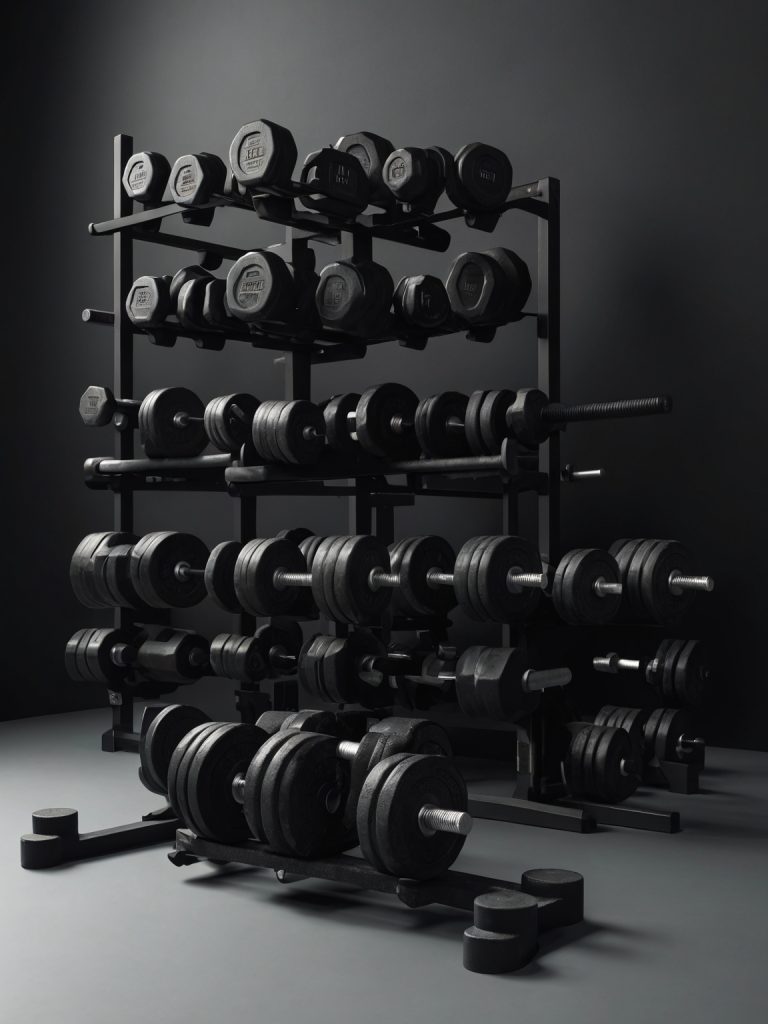This article goes beyond the typical “free weights vs. machines” debate. It acknowledges the challenges beginners face and offers practical solutions to overcome them. You’ll also find a helpful table summarizing the pros and cons of each option, along with real-life research to support the claims.
TL;DR
- Don’t be discouraged by the initial learning curve.
- Focus on mastering a few foundational exercises before adding more.
- Consider a personal trainer or workout buddy for extra support and motivation.
- Machines can be a great tool for beginners, but free weights offer advantages for overall strength and coordination.
- Consistency is key! Celebrate your progress and have fun!
Email Subject: Is it common to feel overwhelmed by free weights programs?
Hello OMGsogd!
I've been delving into research to kickstart my fitness journey. Jeff Nippard's books have been my primary resource, particularly his works on diet (body composition) and 'Fundamentals, Hypertrophy Program.' They're incredibly informative and easy to grasp.
However, as I contemplate embarking on the Full Body Program he recommends, I find myself inundated with feelings of overwhelm. Even just looking at the exercises slated for week 1 is daunting, especially for someone like me who's new to the gym scene. And the program seems to undergo significant changes by week 5, which only adds to the complexity.
For instance, there are 21 different exercises spanning weeks 1 to 4, and then a nearly complete overhaul of exercises from weeks 5 to 8.
The process of watching instructional videos for each exercise and meticulously noting down execution techniques is eating up a significant chunk of my time. And truth be told, I doubt I'll retain most of it when I actually start working out.
Now, I'm teetering on the edge of abandoning free weights in favor of machines. The exercises seem markedly different, and I'm wary of investing so much time in learning them to prevent injuries. Frankly, this whole ordeal is starting to feel like a part-time job. Is it standard for programs to incorporate such a wide array of exercises, or is it merely to stave off boredom? I'd much prefer a routine that's more repetitive and doesn't necessitate constant research.
This could very well be a personal issue, but is it typical to have to learn 21 different exercises just to get started?
Regards,
KX
Hey KX! Starting your fitness journey is an awesome decision, and it’s totally normal to feel a little overwhelmed when diving into the world of free weights. Jeff Nippard’s programs are fantastic resources, but even the best plans can seem daunting at first.
Let’s break it down and navigate this together!
Feeling the Weight of Information? You’re Not Alone!

You mentioned Jeff Nippard’s Full Body Program, and it’s true that incorporating a variety of exercises can feel like a lot to handle, especially for gym newbies. Jumping from 21 exercises in the first month to a whole new routine later on can be confusing.
Here’s the thing: developing proper form is crucial to prevent injuries and maximize results. Instructional videos are gold, but don’t feel pressured to memorize everything at once. Focus on a few key exercises each week, and gradually build your knowledge. Think of it like learning a new language – start with the basics, and fluency will come with practice!
Free Weights vs. Machines: Finding Your Perfect Fit

Both free weights and machines have their place. Free weights allow for a wider range of motion, which can engage more muscle groups and improve overall coordination. This translates to better functional strength and everyday movement. Machines, on the other hand, can be a great way to isolate specific muscles and ensure proper form, especially when you’re starting out. They can also be a confidence booster as you learn the movements.
The Beauty of Repetition (and How to Make it Fun!)
While constant exercise variation can be stimulating, there’s definitely value in a solid foundation of core exercises. You can still challenge yourself by progressively increasing weight, sets, or reps over time. Think of it like building a strong house – you need a stable base before adding fancy features! This progressive overload will keep your muscles guessing and lead to continued strength gains.

Learning 21 Exercises? Not Quite!
Many of those 21 exercises might be variations or progressions of the same core movement. For example, a dumbbell squat might become a barbell squat as you get stronger. This allows you to target different muscle groups or challenge yourself as you progress.
Here’s a tip: focus on mastering 5-7 foundational exercises like squats, lunges, rows, presses, and core work. Once you feel comfortable with those, you can explore variations or add new exercises to keep things interesting. You can also incorporate bodyweight exercises like push-ups, lunges, and rows to build strength without any equipment.
Studies and examples:
- A recent study published in the National Institutes of Health (NIH) journal Arthroscopy & Sports Medicine Research (https://www.nih.gov/) compared free weight exercises to machine exercises for muscle activation. The study found that free weight exercises generally led to greater muscle activation in the core and stabilizer muscles, which can help improve overall balance and coordination.
- A meta-analysis published in the Journal of Strength and Conditioning Research (https://pubmed.ncbi.nlm.nih.gov/37582807/) looked at the effectiveness of free weights versus machines for building muscle mass. The study concluded that both free weights and machines can be effective for muscle growth, but free weights may have a slight edge due to the increased muscle activation they promote.

Table: Free Weights vs. Machines
| Feature | Free Weights | Machines |
|---|---|---|
| Muscle Activation | More muscle groups engaged, including core and stabilizers | Isolates specific muscles |
| Functional Strength | Improves coordination and balance for everyday movement | Less focus on functional movement patterns |
| Learning Curve | Steeper learning curve to master proper form | Easier to learn and use with lower risk of injury |
| Variety | Wider range of exercise variations possible | Limited exercise variety |
This table summarizes the key differences between free weights and machines. Free weights generally require more focus on form but offer greater benefits for functional strength and core engagement. Machines are easier to learn and use but may not be as effective for overall athleticism.
Citations:
- Arthroscopy & Sports Medicine Research: https://www.nih.gov/
- Journal of Strength and Conditioning Research: https://pubmed.ncbi.nlm.nih.gov/37582807/
Ready to Take the First Step?

Don’t let the initial learning curve discourage you! Here are some next steps to kickstart your free weights adventure:
- Start with a beginner-friendly program: There are tons of great resources online and at your gym specifically designed for beginners. Look for programs that focus on proper form and progressive overload.
- Hire a personal trainer (even for a few sessions): A trainer can teach you proper form, design a personalized program based on your goals and fitness level, and answer any questions you have. This investment can save you time, prevent injuries, and boost your confidence in the weight room.
- Find a workout buddy: Having a friend to motivate you and share the learning experience can make a huge difference. You can hold each other accountable, celebrate each other’s successes, and make your workouts more enjoyable.
Remember, consistency is key! Focus on steady progress, celebrate your achievements, and most importantly, have fun! The gym should be a place to challenge yourself and feel good, so don’t be afraid to experiment and find what works best for you. There will be setbacks along the way, but with dedication and a positive attitude, you’ll be amazed at what you can achieve.







